Firms warn of 'devastating' impact of new restrictions
- Published
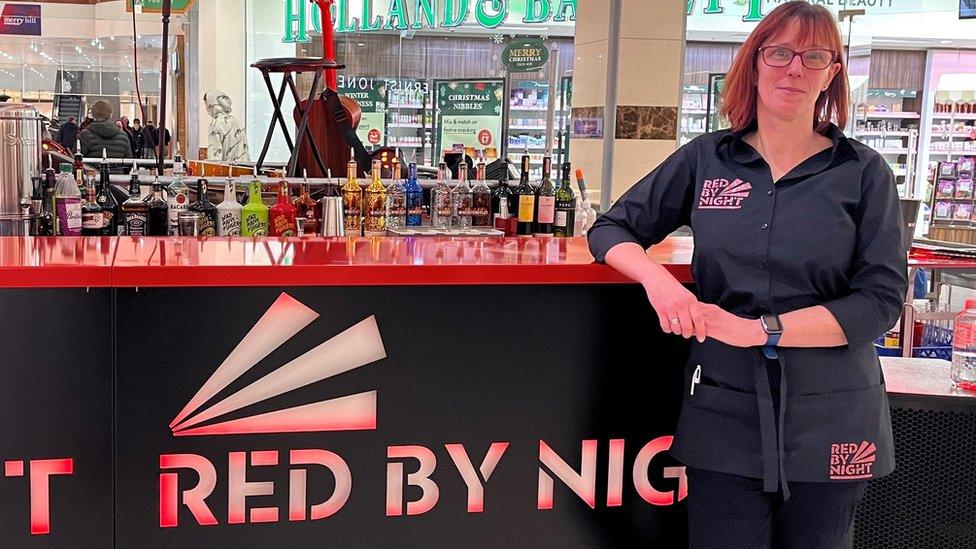
Vicki Wilkes said she will lose thousands of pounds due to cancellations
Business is falling apart right now and no-one should pretend otherwise, said Vicki Wilkes, owner of live entertainment venue Red by Night in Brierley Hill, in the west Midlands.
"It's soul-destroying," she told the BBC.
New restrictions are coming into force to tackle the Omicron variant, including increased use of Covid passes and a return to more working from home.
That has prompted businesses to call for more government support.
Covid passes, proving vaccination status, will also be required to get into nightclubs and large venues like Ms Wilkes' from next week, as part of the 'Plan B' rules to limit the spread of the virus.
The change will be "devastating" for her business she said, and there had not been sufficient economic support or guidance from the government.
"No-one wants Omicron to spread but Plan B feels knee-jerk and reactionary," she said.
"We were relying on December to see us through, and this loss could be the straw that break the camels back."
She is on the verge of cancelling a family Christmas show at the under-500 capacity venue because of the new restrictions. That equated to several thousand pounds of lost revenue, she said.
Tax cut calls
Her call for help has been echoed by the British Chambers of Commerce director, Shevaun Haviland, who warned that retail and hospitality businesses are the most exposed to the new measures, but are not being sufficiently supported by the government.
Ms Haviland has written to the chancellor to request a return to charging a reduced 5% rate of VAT for hospitality and tourism businesses, 100% business rates relief for the retail sector, and grant funding to help the hardest hit firms.
"It is simply not good enough for the government to say at this juncture that 'enough support has been provided' and leave it at that," she added.
Retail, events and hospitality firms had "strained every sinew" to get to this point, but now "face being hamstrung during this crucial festive period through no fault of their own," she said.
The BBC has contacted the Department for Business, Energy and Industrial Strategy for a response.
'Terrible situation'
Dave Critchley, executive head chef of Lu Ban restaurant in Liverpool, has suffered from a wave of cancellations since the government's announcement.
"We're back to those uncertain times, and we feel we are once again back in this terrible situation," he said.
The restrictions have made the public worried, which will have a "massive" impact on the hospitality industry, Mr Critchley added.
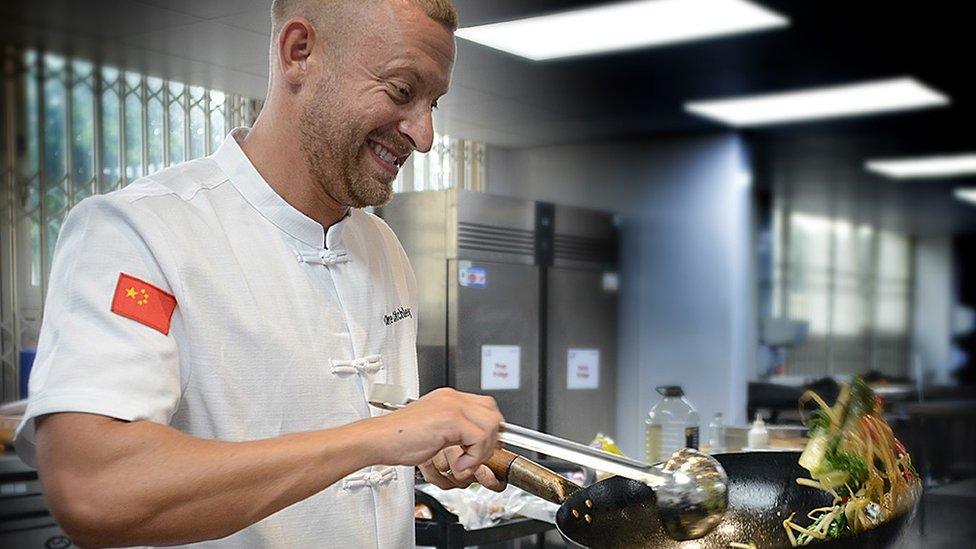
Chef Dave Critchley fears that the restrictions will have a massive impact for hospitality
"It's not just about the restaurants and bars, but all the staff, their mental health, their stress levels. Will there be enough hours to pay them so they can enjoy Christmas?"
'Unnerving'
Alice Cassinelli, the 25-year-old owner of Dysh café in Sheffield, has also already seen cancellations and a fall in walk-in customers.
"The drop in trade is definitely unnerving," she told the BBC.
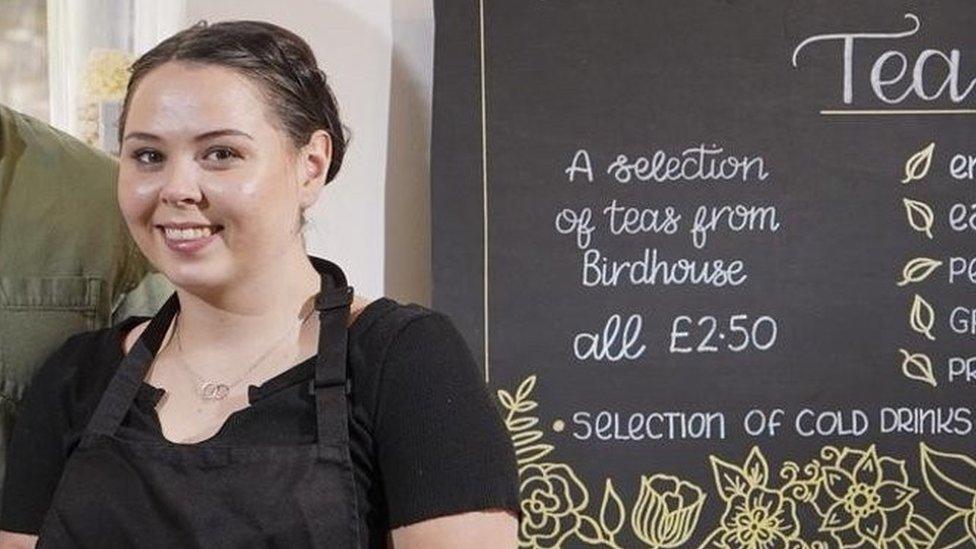
Alice Cassinelli is worried about cancellations and a fall in customer walk-ins
She opened her first cafe, Cassinellis's in Sheffield's city centre two years ago, but had to close when lockdown hit because the business lost trade as office workers left the centre of town.
"We just started to recover and that was working, but now we're in the in-between stage, which is hard as there's no support for us to keep going," she said.
She has put social distancing measures in place to make people feel as safe as possible, but she fears the restrictions will discourage customers.
Wholesale waste
The restrictions could also lead to food and drink being wasted, the Federations of Wholesale Distributors (FWD) warned.
FWD Chief Executive James Bielby said: "All across the country, warehouses are full of Christmas stock bound for the hospitality sector".
"At such short notice, and because fresh food is time and temperature sensitive, it's just not possible for it all to be re-purposed."
Wholesalers, he said, would be left to foot the bill for wastage costs, pointing out they had previously been excluded from both the business rates relief offered to supermarkets and the grants given to the retail, hospitality and leisure firms, which are their customers.
City footfall
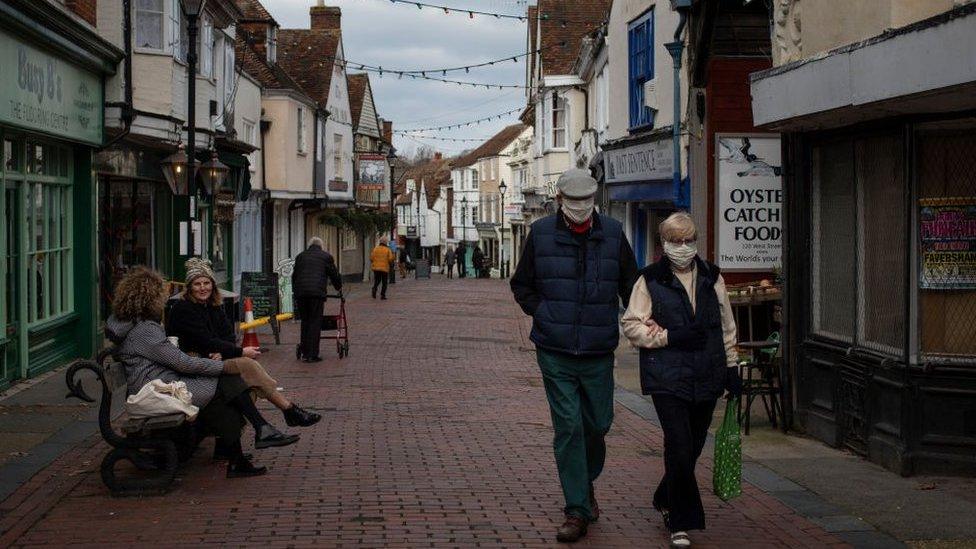
Sir John Timpson, chairman of the shoe repair and key-cutting chain, also warned the survival of city centre businesses was being threatened by the government's work from home guidance.
Sir John told the BBC that the arrival of Omicron had already led to a 5% drop in business over the last couple of weeks, and said that could easily turn into a 10% fall by the new year, when people would normally return to work after a Christmas break, but may now stay at home.
"Once we get beyond Christmas, you're going to find that city centre businesses go back to where they were at the beginning of the Covid problem in March 2020," he said.
"And this is going to keep happening again and again. There will be more variants," he said.
The upshot could be that some businesses disappear for good, he added.
"The infrastructure that supports office life in central London, but also Birmingham, Glasgow, Leeds and lots of other places, will not be there to support people when they eventually go back to work."
- Published9 December 2021
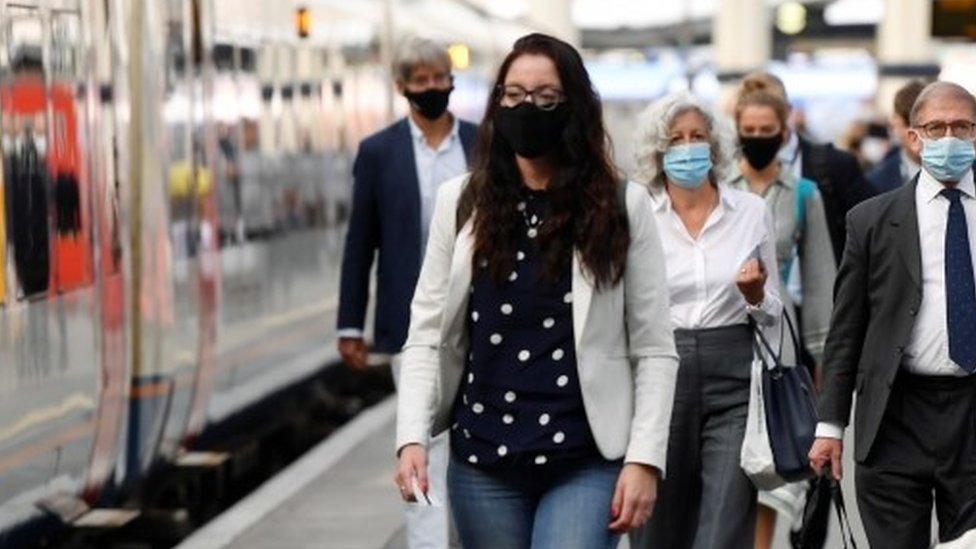
- Published1 July 2022
